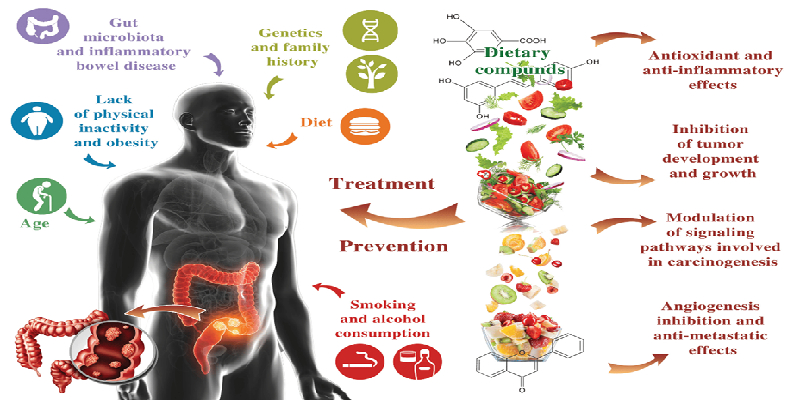March is not only a month of awakening spring, but also a time to raise awareness about colorectal cancer. As we don blue ribbons and march together, it’s crucial to delve into the significance of lifestyle choices, particularly dietary habits, in preventing and managing colorectal cancer.
Understanding Colorectal Cancer
Colorectal cancer, affecting the colon or rectum, is a formidable adversary. It often develops from precancerous polyps in the colon or rectum, and early detection is key to successful treatment. Lifestyle factors, including diet, play a crucial role in both prevention and supporting those undergoing treatment.
The Impact of Diet on Colorectal Health
Fiber-Rich Foods:
Diets high in Fiber have been associated with a lower risk of colorectal cancer. Fiber aids in maintaining regular bowel movements and can help eliminate potential carcinogens from the colon. Whole grains, fruits, vegetables, and legumes are excellent sources of Fiber.
Embrace Fruits and Vegetables:
Fruits and vegetables are rich in vitamins, minerals, and antioxidants. These components contribute to overall health and may help reduce the risk of colorectal cancer. Aim for a colorful plate, incorporating a variety of vegetables and fruits.
Limit Red and Processed Meats:
High consumption of red and processed meats has been linked to an increased risk of colorectal cancer. Opt for lean protein sources such as fish, poultry, or plant-based proteins. If you do consume red meat, it’s advisable to do so in moderation.
Calcium and Vitamin D:
Adequate calcium and vitamin D intake are associated with a lower risk of colorectal cancer. Include dairy products, fortified plant-based milk, and green leafy vegetables in your diet to ensure sufficient calcium. Exposure to sunlight is a natural way to obtain vitamin D.
Moderate Alcohol Consumption:
Excessive alcohol intake has been linked to an increased risk of colorectal cancer. If you choose to consume alcohol, do so in moderation. It’s generally recommended that women limit themselves to one drink per day, and men to two drinks per day.
Practical Tips for a Colorectal-Friendly Diet
Create a Balanced Plate:
Ensure that your meals are well-balanced, incorporating a variety of food groups. A colorful and diverse diet provides a broad range of nutrients essential for overall health.
Stay Hydrated:
Adequate hydration is essential for digestive health. Water helps in the smooth passage of stool through the colon, reducing the risk of constipation.
Limit Processed Foods:
Processed foods, often high in unhealthy fats and additives, should be limited. Instead, focus on whole, unprocessed foods to maximize nutritional benefits.
As we raise the flag for Colorectal Cancer Awareness Month, let’s not only spread awareness but also empower ourselves and our communities with knowledge about dietary choices that can positively impact colorectal health. Together, by making informed decisions, we can contribute to a healthier future, free from the shadows of colorectal cancer.



